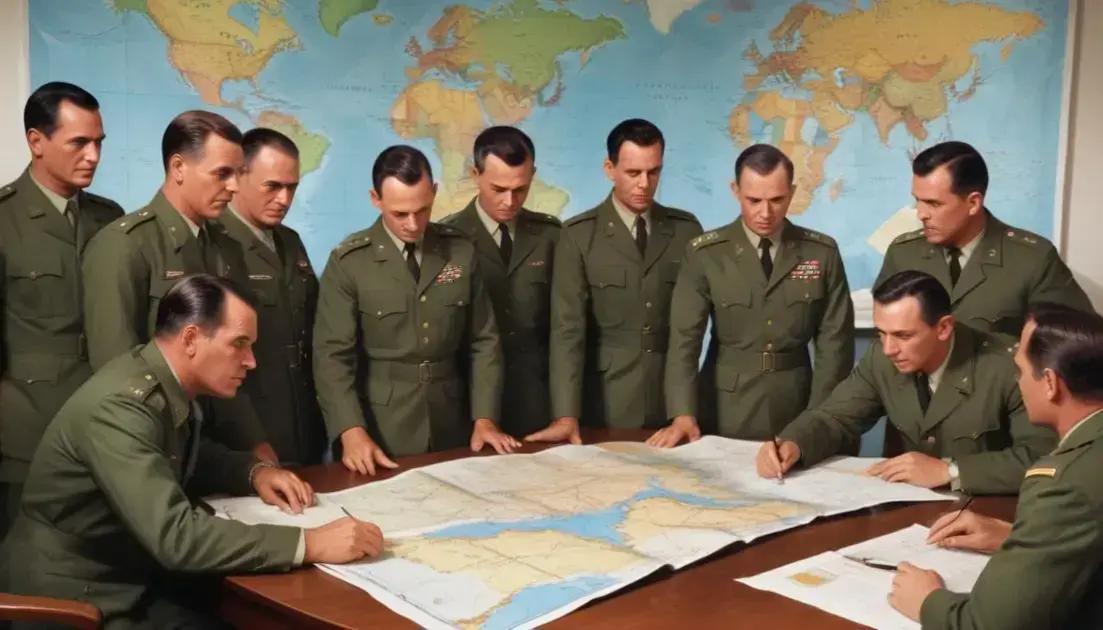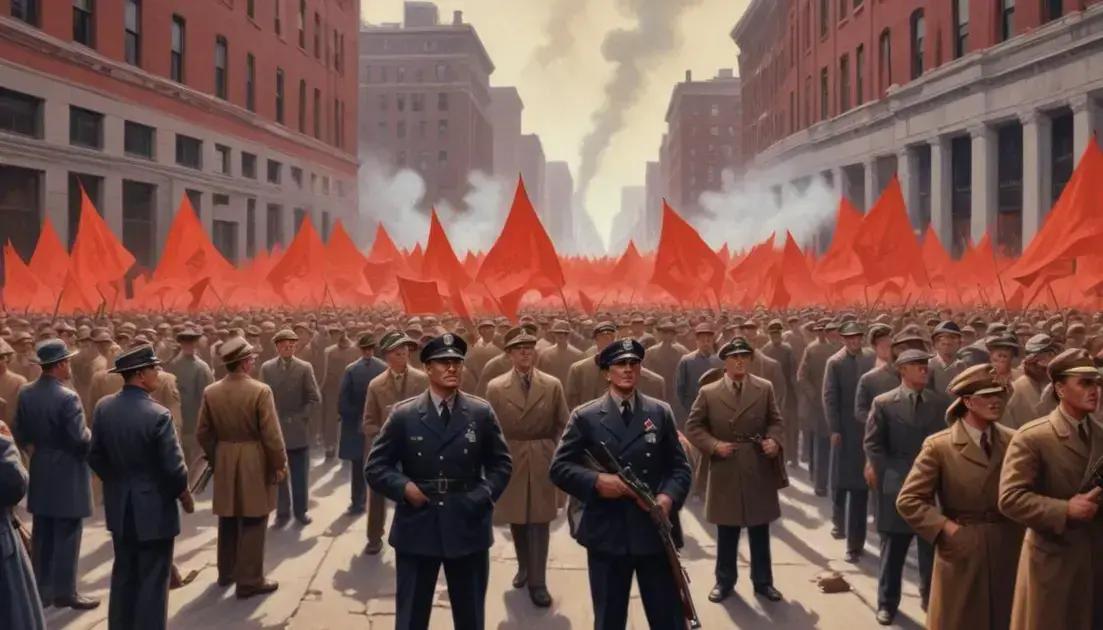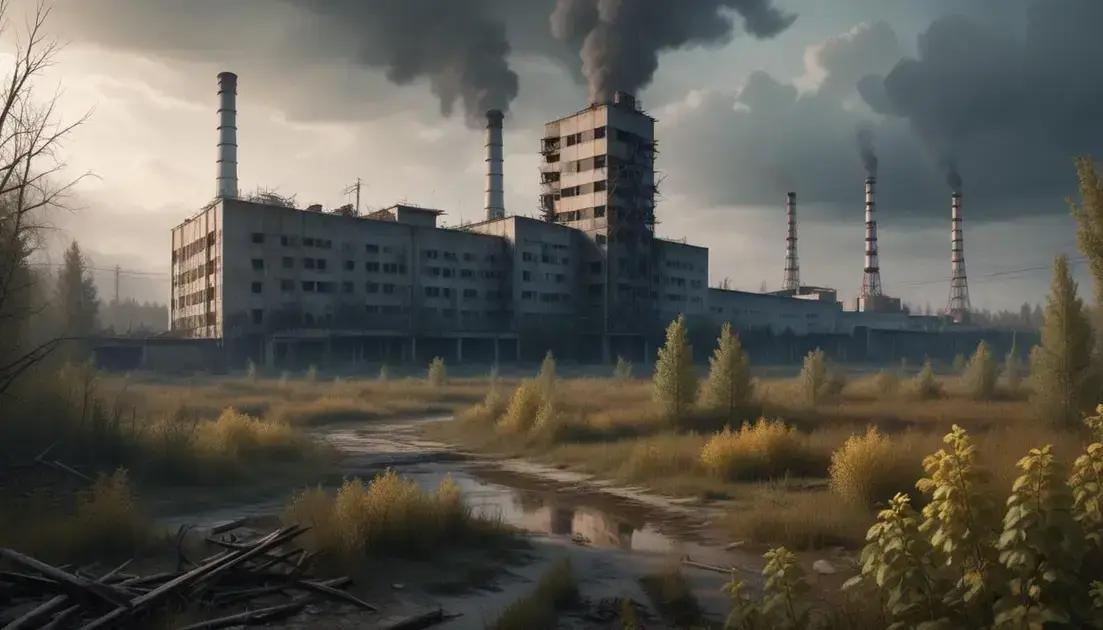
What If Cuba Had Been Invaded in 1962?
The Cuba Crisis of 1962 had profound implications, teaching us vital lessons about the importance of communication, diplomacy, and the risks of nuclear weapons. The event showed that misunderstandings can escalate tensions and that peaceful negotiations are essential for conflict resolution. Additionally, it emphasized the need for global cooperation, as actions by one nation can significantly impact others, underscoring the delicate balance required to maintain international peace and stability.
Your mind might wander back to that tense period in 1962 with the Cuba Crisis. What if things had escalated? Join us as we explore the chilling possibilities of a potential invasion.
Historical Context of the Cold War
The Cold War was a period of tension between the United States and the Soviet Union, lasting from the end of World War II until the early 1990s. This rivalry was not just a struggle for power, but also a battle of ideologies. Each side wanted to prove that their way of life was superior.
The Birth of the Cold War
After World War II, Europe was divided. The US supported capitalism and democracy, while the Soviet Union promoted communism. These opposing beliefs led to conflicts around the world. Countries were often pressured to take sides.
Key Events that Shaped the Cold War
Several key events defined this era. The Berlin Blockade in 1948 showed the depth of division in Germany. The Korean War in the early 1950s further demonstrated the global reach of this conflict. Each event added tension and fear of a direct confrontation.
The Arms Race
One major aspect of the Cold War was the arms race. Both superpowers built massive nuclear arsenals. The threat of nuclear war loomed large throughout this period, affecting politics and society in many countries.
The Space Race
The Cold War also led to the Space Race. The Soviet Union launched Sputnik in 1957, the first artificial satellite. This motivated the US to invest heavily in space exploration, leading to many technological advancements.
The Cold War influenced not just global politics but everyday life. People were aware of the dangers of nuclear weapons. Schools practiced drills for a possible attack, and paranoia spread through societies worldwide.
Understanding the historical context of the Cold War helps us see how these events shaped today’s world. The decisions made during this time still resonate in international relations today.
Significance of the Cuba Crisis
The Cuba Crisis was a critical moment in history. It took place in October 1962, when the US and the Soviet Union faced off over nuclear weapons in Cuba. This standoff brought the world to the brink of nuclear war.
Why It Mattered
The crisis highlighted the dangers of the Cold War. Tensions were high, and both superpowers felt threatened. The potential for disaster was real. It showed how quickly misunderstandings could escalate into conflict.
Impact on US-Soviet Relations
The standoff led to significant changes in US-Soviet relations. Afterward, both sides realized the need for better communication. This desire for clearer dialogue resulted in the establishment of communication hotlines.
Nuclear Policies Changed
The crisis shifted nuclear policies too. It prompted both nations to rethink their approaches to nuclear arms. The idea of mutually assured destruction became a key factor in preventing war. No one wanted to see the catastrophic effects of a nuclear bomb.
Lessons Learned
The Cuba Crisis taught important lessons. It illustrated the importance of diplomacy and negotiation. Aggressive postures can lead to unintended consequences. The world saw that dialogue was essential to avoid future crises.
The significance of the Cuba Crisis continues today. It serves as a reminder of how close the world came to disaster. Maintaining peace and understanding among nations remains vital for global stability.
Potential Outcomes of an Invasion
Imagining a potential invasion of Cuba in 1962 raises many questions. What might have happened if the US had taken military action? The outcomes could have been drastic and far-reaching.
Escalation to Nuclear War
The most alarming outcome could have been the escalation to nuclear war. The Soviet Union had missiles in Cuba. An invasion would likely provoke retaliation. This risked catastrophic consequences for both superpowers and the world.
Global Political Shifts
An invasion might have caused shifts in global politics. Many countries would need to choose sides. This could create new alliances and deep divisions in international relations. Countries in Latin America might have reacted against US intervention.
Regional Instability
A military invasion could destabilize the Caribbean region. Other nations might feel threatened and push back. This could lead to a rise in anti-American sentiment, leading to conflicts and unrest.
Military and Economic Ramifications
A war in Cuba would strain military resources. The US might need to withdraw forces from elsewhere. This could weaken its military presence globally and affect its economy.
Long-term Consequences
The long-term consequences of an invasion could last decades. It might alter the course of the Cold War. The arms race and tensions would likely continue, affecting future generations.
Overall, the potential outcomes of an invasion paint a disturbing picture. Each scenario shows how fragile peace was in 1962. Even small actions could have led to significant global changes.
Geopolitical Ramifications
The geopolitical ramifications of the Cuba Crisis were significant and far-reaching. This event changed the landscape of international relations during the Cold War.
Shifts in Alliances
After the crisis, countries had to reassess their alliances. Nations in Latin America looked to the US and the Soviet Union for support. This often increased tensions among neighboring countries.
U.S. Foreign Policy Changes
The Cuba Crisis forced the U.S. to rethink its foreign policy. It prompted a focus on diplomacy and a need for better communication with adversaries. The idea of using force became riskier.
Increased Military Presence
In response to the crisis, the U.S. increased its military presence in nearby regions. This move aimed to deter Soviet influence in Latin America and protect U.S. interests. It also raised fears of future conflicts.
Global Reactions
The global response to the crisis was mixed. Many countries condemned U.S. actions, while others supported American efforts to curb communism. This divide highlighted the ideological battle between capitalism and communism.
Long-term Impact on the Soviet Union
The crisis had lasting effects on the Soviet Union too. It showcased the vulnerabilities of Soviet power. This awareness may have contributed to changes in Soviet leadership and policy in the following years.
Understanding these geopolitical ramifications is crucial. They demonstrate how one crisis can reshape political alignments and international relations for decades.
Lessons Learned from 1962
The events of 1962 taught us many valuable lessons. The Cuba Crisis was more than just a standoff; it was a wake-up call for nations. It highlighted the importance of communication and diplomacy.
Importance of Communication
One key lesson was the need for clear communication. Both the U.S. and the Soviet Union were on edge. Misunderstandings could have led to war. Effective dialogue could help avoid similar crises in the future.
Value of Diplomacy
Diplomacy emerged as a critical tool. Rather than resorting to military action, the power of negotiation became clear. Leaders learned to seek peaceful solutions to conflicts.
Realizing the Risks of Nuclear Weapons
The crisis underscored the dangers of nuclear weapons. The threat of destruction was very real. This understanding led to calls for arms control and nuclear non-proliferation.
Global Cooperation
The world realized that cooperation is necessary. In a tightly-knit global landscape, one country’s actions can affect many others. Working together is essential for peace.
Awareness of Global Impacts
Finally, the events of 1962 made people aware of global consequences. Local conflicts can have far-reaching effects. Understanding this reality helps leaders make informed decisions.
Overall, these lessons remind us that communication, diplomacy, and cooperation are vital in maintaining peace and stability.
Conclusion
In conclusion, the events of 1962, especially the Cuba Crisis, taught us important lessons about communication and diplomacy. We learned that clear dialogue can prevent misunderstandings that could lead to conflict. The value of negotiation over military action became evident, emphasizing peace as the best solution.
Additionally, the crisis highlighted the dangers of nuclear weapons and the need for arms control. It also reminded us that global cooperation is essential in today’s interconnected world. Each country’s actions can have lasting effects on others, so working together is crucial.
By reflecting on these lessons, we understand how essential it is to prioritize peaceful resolutions. The experiences from 1962 can guide future leaders in making thoughtful decisions that promote stability and harmony among nations.


